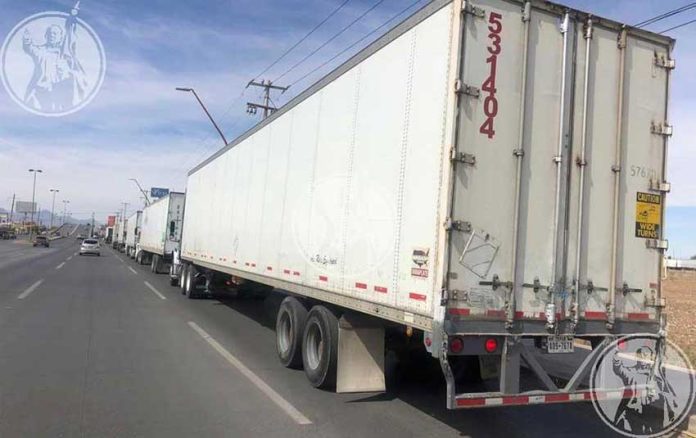United States President Donald Trump hasn’t yet closed the border with Mexico as he has threatened, but travelers are experiencing delays at some ports of entry as a result of a decision to redeploy U.S. border officials.
Texas broadcaster KRGV reported that both motorists and pedestrians going to and from the Rio Grande Valley in Texas are noticing longer wait times at international bridges, and long lines have also been reported at border crossings between Ciudad Juárez, Chihuahua, and El Paso, Texas.
The delays follow a decision by United States Customs and Border Protection (CBP) to withdraw personnel from official border crossings to help process an influx of mainly Central American migrants.
“Nationwide, CBP had more than 12,000 migrants in custody this week. The agency considers 4,000 to be a high number of migrants in custody and 6,000 to be a crisis level. More than 12,000 migrants in custody is unprecedented,” the department said in a statement Wednesday.
CBP explained that up to 750 officers from ports of entry will support Border Patrol with care and custody of migrants. The shifting of resources and personnel will have “a detrimental impact” at all southwest border ports of entry, the department said.
“CBP will have to close lanes, resulting in increased wait times for commercial shipments and travelers.”
At 7:30pm yesterday, the bridge between Donna, Texas, and Río Bravo, Tamaulipas, only had two lanes open to traffic, KRGV said.
One motorist said he barely moved half a mile in three hours waiting to cross the border.
About 25 kilometers to the east, a woman said she waited for two hours yesterday morning on the Progreso-Nuevo Progreso International Bridge, while a Reynosa man said it took him double the usual time to walk across the border to McAllen, Texas.
From 5:00am today, long lines of motorists were observed in Ciudad Juárez crossing two bridges into El Paso, the newspaper El Diario de Juárez reported. Wait times were as long as two hours and 15 minutes.
This afternoon, hundreds of trucks were stranded in the Chihuahua border city.
Juárez Mayor Armando Cabada said that US $5 million worth of exports cross into the United States via the city’s border crossings every hour and therefore any delays at the border are costly.
Cabada was expected to meet with CBP officials this afternoon to discuss the border congestion issue.
The mayor also said that if the border were to close completely, as Trump has threatened on Twitter and at rallies in recent days, the effect on the economy would be “extremely serious.”
The everyday lives of Juárez residents would also be disrupted, Cabada explained.
Tijuana Mayor Juan Manuel Gastélum, an outspoken critic of illegal immigration, said a border closure was a “terrible possibility” and urged the federal government to do whatever is necessary to solve the migration problem.
On the other side of the border, Britton Clarke, president of the Washington D.C.-based Border Trade Alliance, urged the CBP to reconsider its redeployment decision.
“The trade community understands the difficult decisions our border agencies must make as they strive to achieve the careful balance between facilitation and security. Increased migrant flows only make that challenge more complex,” she said in a statement.
“We are, however, deeply concerned over the announcement by Customs and Border Protection that the agency will shift up to 750 CBP Officers away from ports of entry along the U.S.-Mexico border . . .” Clarke continued.
“Reassigning resources from the border is the wrong move. As the agency itself acknowledges, this will result in lane closure and delays. Those delays will disrupt trade flows, increase shipping costs, and risk a drag on the U.S. economy.
We strongly encourage the Department of Homeland Security to deploy resources from other parts of the department to support Border Patrol during this time of increased migrant flows.”
Source: El Diario de Juárez (sp), KRGV (en), Milenio (sp), El Mañana (sp)
